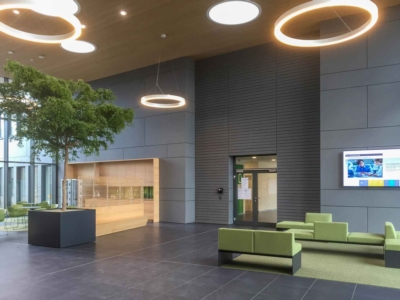




On June 23, 2016, British nationals created a real earthquake by voting at nearly 52% in favor of the exit of the United Kingdom from the European Union. Announced in 2013, the possible exit of the British from the European Union divided the population and it took more than 3 years for David Cameron to carry out the referendum. Before the vote, the financial experts' analyzes were alarmist about the consequences of Brexit on the Duchy of Luxembourg, especially on the issue of real estate investments in the kingdom. State of play three months after this historic decision.
Leaving the European Union, companies domiciled in the United Kingdom have lost the famous "European passport" which allowed its holders to operate in Europe. But many non-European institutions such as the United States or Japan were located in London to offer their financial products on European soil. Financial and real estate investment institutions are therefore required to relocate to another European Union country in order to continue to benefit from the provisions of the European passport.
Luxembourg, with its attractive tax system that attracts companies and its multilingual inhabitants, has managed to pull out of the game to attract establishments formerly settled on British soil. Indicators of office property investment in Luxembourg remained in the green , despite a slight increase in vacancy. According to figures, the take-up in occupancy amounted to 51,000m2 in the second quarter, the same level as a year ago, so Brexit did not have negative impacts . The vacancy has increased to 5.3% of the premises against 4.6% three months ago, before the Brexit. Finally, the performance of offices in Luxembourg is a significant asset for companies looking for a territory to relocate. While the best offices in London yielded 3.50%, it was 4.75% in the duchy, a more attractive rate than other financial markets in the European Union (Paris 3.25%, Frankfurt 4.35% ).
When a company leaves the British territory to come to Luxembourg, it goes without saying that most of the leaders, employees and their families do the same and therefore seek to lodge on Luxembourg soil. The real estate investment should logically be favored by the arrival of this new community that will have to lodge. Luxembourg is attractive for this highly qualified and English-speaking population because it is sure to be quickly integrated by Luxembourgers, who are also massively English-speaking. Thus, investment in real estate for resale and rental appears to be a good option, because if the normal kingdom welcomes each year between 8 000 and 10 000 new residents according to figures provided by the Directorate of Immigration of Luxembourg, this number should be revised upwards thanks to the successive arrivals of companies and workers of British nationalities. But the country does not build enough housing every year to cope with new arrivals, so real estate prices remain high , apartments do not stay vacant for a long time and the rental real estate investment promises great financial benefits.
Employees and managers of companies seeking a relocation are not the only ones wishing to settle in the territory of the duchy. Highly qualified British citizens who enter the labor market or who want to start their own business may also be tempted to leave the United Kingdom to settle in Luxembourg, historically a large employer of skilled workers.
The consequences of the exit of the European Union on real estate investment in Luxembourg are not yet measurable with certainty since the Brexit is not immediate, but takes place in successive stages. An analysis at the end of 3 months nevertheless makes it possible to apprehend certain signals which seem positive on the markets of the investment of the office and private real estate.